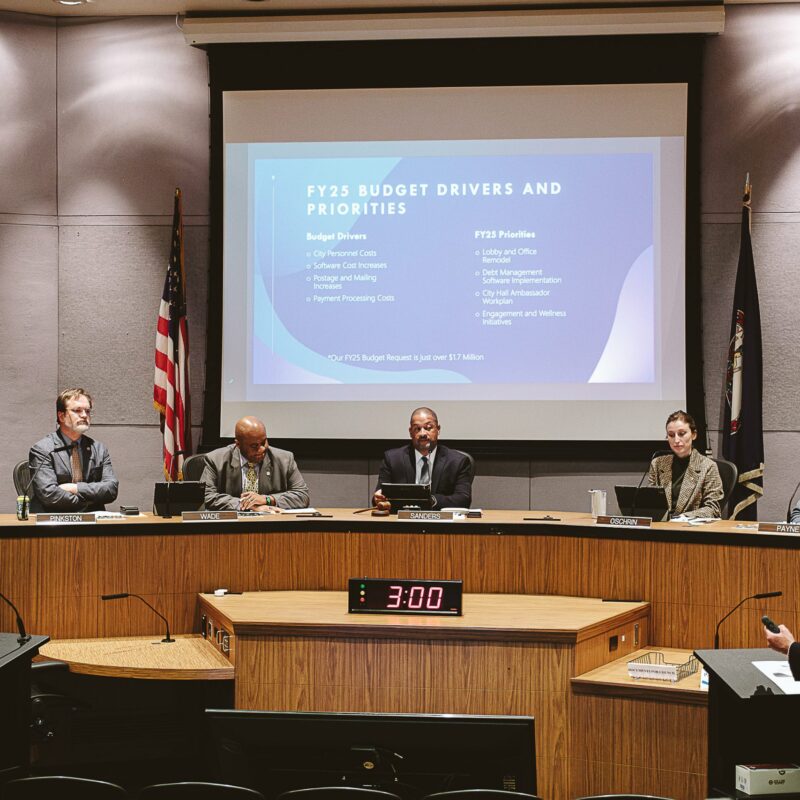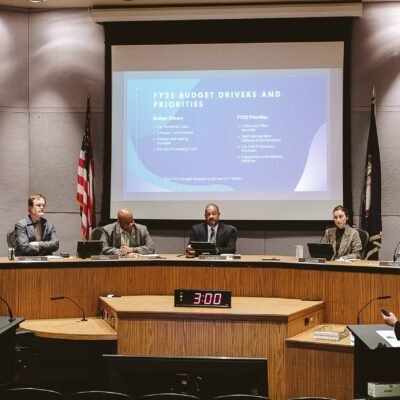Freedom’s just another word for “sharing information.” Take Delegate Rob Bell’s House Bill 903, a bill that would allow members of college threat assessment teams to discuss medical and criminal records of potential threats, as well as exempt records produced by those teams from the Freedom of Information Act (FOIA).
|

Public access to threat assessment team records could have “a chilling effect,” said Delegate Rob Bell.
|
“Threat assessment teams cannot function if their members cannot share information with team members because of confidentiality restrictions,” said Dr. Dewey Cornell, director of the University of Virginia’s Youth Violence Project, via e-mail. “This bill facilitates team functioning. There is no real downside that I see.”
Not to sharing among threat team members, that is. Last week, an identical bill proposed by Virginia Senator John Edwards was amended to remove the FOIA exemption, which may lead to an identical amendment for Bell’s threat assessment bill.
“The [Virginia] Press Association offered a more modest version to try and compromise, to come up with a FOIA exemption everybody could live with,” says Bell. “They finally decided to kick it to the FOIA [Advisory] Council, which is a year-round study group.”
The portion of Senate Bill 207 that addresses sharing medical and criminal records “will continue on,” according to Ginger Stanley, executive director of the Virginia Press Association.
“The Press Association didn’t have an issue with that,” says Stanley. “Our issue was in the fact that we wanted to be able to have a look back on how these teams react.”
Bell said that there is no decision at present about amending the House’s threat assessment bill. The three options, he explained, are “whether to proceed with the bill only containing the information-sharing provision, whether we kick the whole bill over a year until the FOIA stuff comes back, or whether we try to use these next couple of weeks to actually bang out a compromise here.” If the bill passes without the FOIA exemption, summaries produced by threat assessment teams will be accessible to the public.
“I do know that there was concern that, if the records are fully FOIA-able, it will have a chilling effect on the sharing of that information and also on people coming forward,” said Bell.
Dr. Cornell, whose publications include School Violence: Fears Versus Facts and a manual titled Guidelines for Responding to Student Threats of Violence, said via e-mail that while external oversight “is always important for any government function,” oversight doesn’t necessarily mean unfettered access.
“No one would want the Freedom of Information Act to be used to review their mental health records or employment record, and the same is true for threat assessment,” wrote Cornell. “This is important to protect the public.”
Bell concurred. “The question was always ‘How do we come up with a balance that makes sense?’” said Bell, who did not rule out the possibility of amending the bill while the General Assembly was still in session.
“We’ve got a full 30 days,” said Bell. “The House took a shot at it, the Senate took a shot at it. We’ll know more in a week or two.”
C-VILLE welcomes news tips from readers. Send them to news@c-ville.com.






